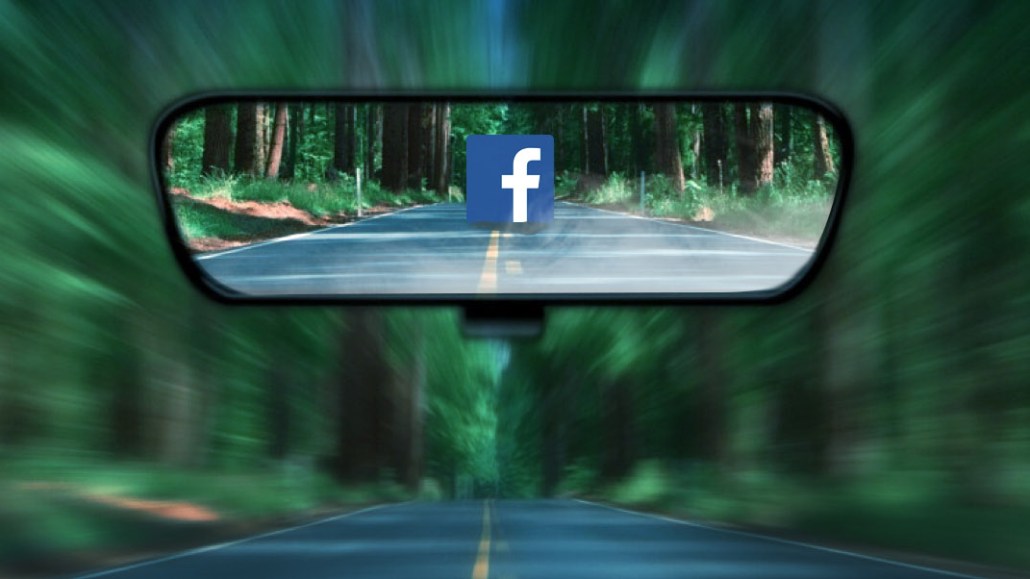Save 50% on a 3-month Digiday+ membership. Ends Dec 5.

Three years ago, Facebook rolled out its Anthology program, an attempt to pair brands and publishers to produce branded content to distribute on its social network. But brands have increasingly bypassed Facebook to do their own matchmaking, as the value of Facebook’s program has faded and its relationship with publishers has gone south.
“I’m trying to remember the last time I talked to [Facebook] about it, and I don’t,” said Jeanne Bright, vp and group director of paid social at DigitasLBi.
Facebook’s Anthology program has lost its luster for two main reasons, buyers said: Price and relevancy.
First, the price. Facebook cut the price tag from an initial $2 million minimum spend requirement to roughly $1 million, and agency executives this week confirmed that was still the case. But a two-comma commitment can still take advertisers aback. The reduced financial commitment is “slightly more palatable,” but is “still a sizable commitment,” said one agency executive.
“The promise is to get great content with the media to promote it baked in and learn what works on the platform. But it can be an expensive way to do it,” said Noah Mallin, head of experience, content and sponsorships at Wavemaker.
Second, the program is less necessary. When Facebook introduced Anthology in April 2015, brands were still wrapping their heads around how and why to work with publishers to produce branded content for distribution on Facebook and elsewhere. That Facebook would bring its internal data to bear to help brands identify the publishers to work with and hone their content ideas and distribution strategies “definitely piqued clients’ interest,” said Bright.
But brands and their agencies have become better at developing branded content campaigns with publishers.
Ad position: web_incontent_pos1
“It’s hard for a large holding company that has experts in Facebook data and has connections already into understanding that to know, ‘What extra value would I really get from Facebook? Would they know it any better than we already know it?’” said Erin Vogel, svp of creative and brand content strategist at Spark Foundry.
Facebook has also made it easier for advertisers to sidestep Anthology. At the time of the program’s inception, Facebook hadn’t officially blessed having branded content organically distributed on its social network. But a year later, Facebook dropped its branded content restrictions for publishers and added a tool for them to tag their branded posts so that brands could independently track a post’s performance and pay to promote it as an ad.
“We have relationships with almost all of the Anthology partners and buying expertise on the platform. It’s not something we necessarily need Facebook to facilitate for us,” said Mallin.
Asked about Anthology’s growth, Facebook would only say that it’s worked on more than 100 Anthology campaigns since 2015. Facebook has tweaked Anthology to make it more appealing to advertisers. Instead of being limited to the handful of publishers that were participants at launch, it has opened up Anthology’s roster to include larger and more diverse media companies, such as Turner, 21st Century Fox, Globo and Copa90, according to a Facebook spokesperson. And existing partners have made more of their properties available for Anthology deals. For example, Disney developed last year an Anthology campaign with IBM that incorporated “Star Wars” and one with HP that included “Club Mickey Mouse.”
“Last year, we tested a new approach for Anthology and have now evolved the program to more proactively build content and experiences for brands, around publisher [intellectual property], designed for Facebook’s platforms,” emailed Keenan Pridmore, head of Facebook Creative Shop Studio, home to the Anthology program.
Ad position: web_incontent_pos2
Facebook’s increasingly rocky relationship with publishers has also cast a shadow over the Anthology program. The company’s recent move to deprioritize publishers’ organic content — which has already put people out of jobs and one publisher out of business — has caused ad buyers to wonder whether that friction would carry over into the content publishers are hired through Facebook to make for brands.
“Anthology is becoming a less attractive lever, and the publishers are also less enchanted with Facebook, so even as more publishers have access [to Anthology], I think there is a little bit of, ‘Are you going to get the best out of those publishers through a program like this versus going to them directly?’” said another agency executive.
There’s no evidence that a publisher would hold back on an Anthology campaign because of the more abrasive dynamic between Facebook and publishers, the agency exec said. “But I do think perceptually it starts to call into question: Why go to Facebook to reach these publishers when that relationship in and of itself could be a source of friction?”
More in Marketing

Ulta, Best Buy and Adidas dominate AI holiday shopping mentions
The brands that are seeing the biggest boost from this shift in consumer behavior are some of the biggest retailers.

U.K. retailer Boots leads brand efforts to invest in ad creative’s data layer
For media dollars to make an impact, brands need ad creative that actually hits. More CMOs are investing in pre- and post-flight measurement.
Ad position: web_bfu



